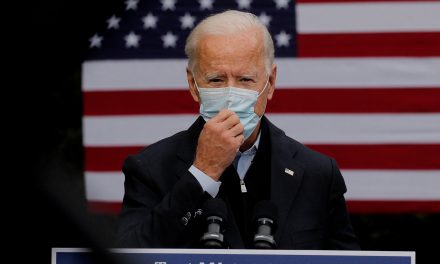The political fallout from Sen. Ted Cruz’s (R-Texas) ill-timed flight to Mexico this week is poised to last much longer than his 24-hour trip south of the border.
Strategists say that by venturing to Cancun while his constituents back home faced widespread power outages and freezing temperatures, the Texas senator may have done damage to his political career that could haunt him well into 2024, when he will likely run for reelection to his Senate seat or possibly mount a presidential bid.
“He broke one of the cardinal rules of politics: Be there in a crisis,” one Republican who works on presidential campaigns said. “I don’t care how long we have until ’24. The attack ads write themselves and there’s photographic evidence to back it up. That’s a problem for him.”
Pictures of Cruz and his wife boarding a flight to Cancun surfaced online Wednesday, igniting outrage in Texas, where a brutal winter storm had left millions of residents stranded in sub-freezing temperatures without electricity and water.
Since then, Cruz has been doing damage control. In a statement Thursday, he explained away his brief trip by saying that he was simply accompanying his young daughters, who had “asked to take a trip with friends,” and would fly back home Thursday afternoon.
The blowback only intensified upon his return to Houston. Flanked by reporters Thursday night, the Texas senator admitted that he had originally planned to stay in Cancun “through the weekend,” but ultimately decided to fly back early after realizing that he needed to be in his home state amid the crisis.
“I didn’t want all the screaming and yelling about this trip to distract even one moment from the real issues that I think Texans care about, which is keeping all of our families safe,” Cruz told reporters.
“It was obviously a mistake, and in hindsight, I wouldn’t have done it.”
Despite the apology, the Cancun debacle only adds to Cruz’s political troubles this year.
He’s still facing blowback — and now a Senate Ethics Committee investigation — for objecting to the certification of the Electoral College results last month, even after the process was disrupted earlier in the day by a deadly riot at the U.S. Capitol carried out by supporters of former President Trump.
Michael Steel, a Republican strategist and former aide to House Speaker John Boehner (R-Ohio), said that while Cruz’s efforts to challenge the results of the presidential election carry more weight, his trip to Cancun may prove more damaging to the Texas senator in the long run.
“[Rejecting the election results] is a much more consequential mistake than an ill-timed vacation to Cancun. But if you look at the political impact, it’s entirely possible that this week’s escapades will do much more lasting damage to him,” Steel said.
For Cruz, there’s reason to fear the fallout from the Cancun controversy. His approval rating dropped from 48 percent to 45 percent in a roughly two-week span following the Jan. 6 riots at the Capitol, according to a recent Morning Consult poll. Among Texas Republicans, his job approval fell 5 points, from 81 percent to 75 percent.
Texas also isn’t as ruby red as it once was. While Republicans have continued to rack up wins there in recent years, their once-wide margins of victory have narrowed. Cruz first won his Senate seat in 2012 by a 16-point margin. In 2018, however, he only narrowly beat former Rep. Beto O’Rourke (D-Texas), holding onto his seat by a scant 2.6 percentage points.
Cruz is also widely seen as having future presidential ambitions. He ran unsuccessfully for the White House in 2016, losing the GOP nomination to Trump, and he’s seen as a possible contender for the party’s 2024 ticket. The Cancun trip, however, could complicate things.
“It’s going to be a problem for him for quite some time and I think there are a couple of reasons for that,” Steel said. “It is in and of itself memorable; it exposes the central tension of Ted Cruz’s political identity, which is that he is an elitist that tries to play a populist on TV.”
“Nothing highlights that more than the image of him headed to the Ritz-Carlton in another country to sit on the beach while millions of his constituents are facing severe challenges,” Steel added.
There’s still plenty of time for Cruz to clean up from his recent political faux pas, and voters have, in the past, shown a willingness to forgive candidates for past missteps.
But Cruz is already something of a boogeyman for Democrats, who are eager to seize on the Cancun trip to attack the Texas senator. On Thursday, the Texas Democratic Party demanded that Cruz resign amid the controversy.
One GOP operative who has worked on Senate campaigns said Cruz’s decision to fly to Cancun had only reinforced “the worst assumptions” about the Texas senator.
“The moniker ‘Lyin’ Ted’ wasn’t pulled out of thin air,” the operative said, using a nickname for Cruz coined by former President Trump during the 2016 Republican presidential primary. “The shifting stories, the self-righteousness when other people mess up – it’s the image of him being slippery, if not dishonest.”
Cruz isn’t the first politician to be rocked by a vacation scandal. Former New Jersey Gov. Chris Christie (R) was criticized in 2010 for moving forward with a planned family vacation to Disney World as his state faced a massive snowstorm. He came under fire again in 2017 for staying at a state-owned beach house while many beaches were closed due to a government shutdown.
Cruz himself chastised Austin, Texas, Mayor Steve Adler (D) last year after learning that Adler had traveled to Mexico despite urging his constituents to stay home and avoid travel due to the coronavirus pandemic.
“He’s not up until 2024 but this damage is deep,” said Michael Steele, a former Republican National Committee (RNC) chairman, during an appearance on MSNBC on Friday. “A lot of Texans right now are mad and rightly so, and the hypocrisy is coming home to roost.”
“When you are in the middle of a crisis and you are a leading figure in the state who can help with that crisis, and you check out the way he did, yeah, that’s going to sting and that’s going to leave a welt for a long while, and you don’t just get to walk it back,” he said.
Cruz still has his defenders. Rep. Matt Gaetz (R-Fla.) declared in a tweet early Friday morning that the Texas senator “should not have apologized.” Likewise, Trump’s eldest son, Donald Trump Jr., dismissed the criticism of Cruz in a video posted on the streaming platform Rumble on Thursday, saying that Cruz’s job as a senator isn’t to deal with in-state crises.
“The optics of that right now isn’t ideal. But in the grand scheme of things, he’s a senator,” Trump Jr. said. “He doesn’t manage crises in states. That’s a governor’s job. He’s a federal employee. They mostly vote on things.”
In fact, members of Congress play important roles during emergencies in their home states and districts, often acting as points of contact for federal and local officials.
“People who think the job of a member of Congress during a local natural disaster is purely performative have definitely never been around a member of Congress during a local natural disaster,” Matt Glassman, a senior fellow at the Government Affairs Institute at Georgetown University, tweeted. “It might be the single situation where they can (and do) most affect policy outcomes.”
The Hill





